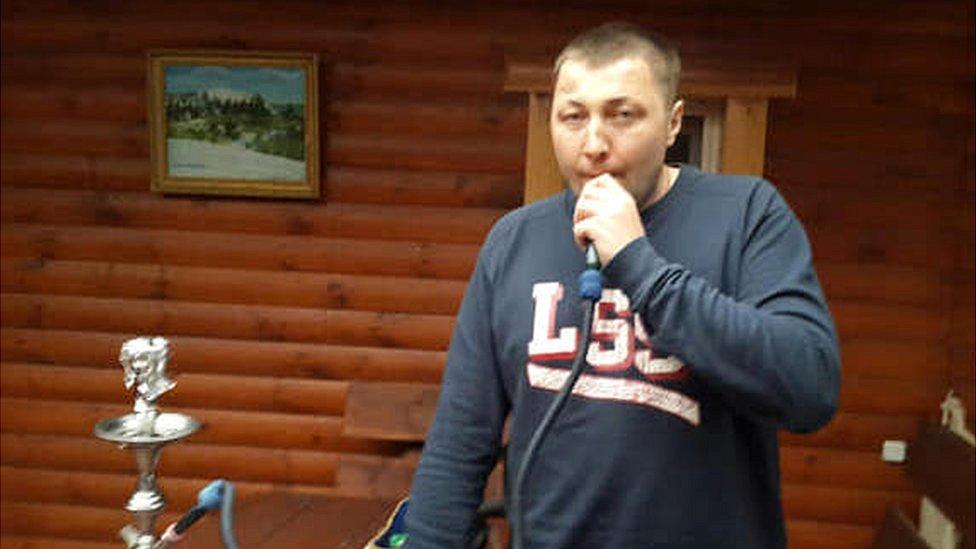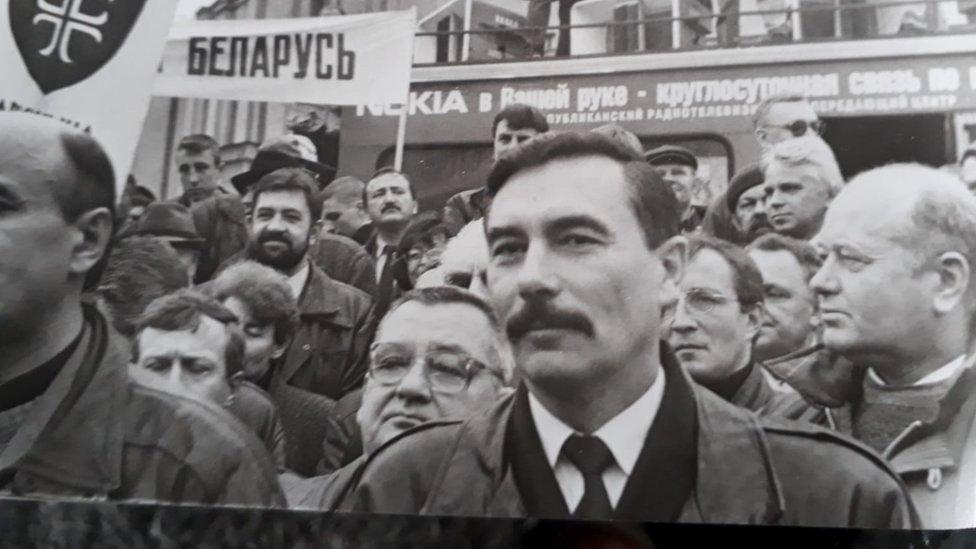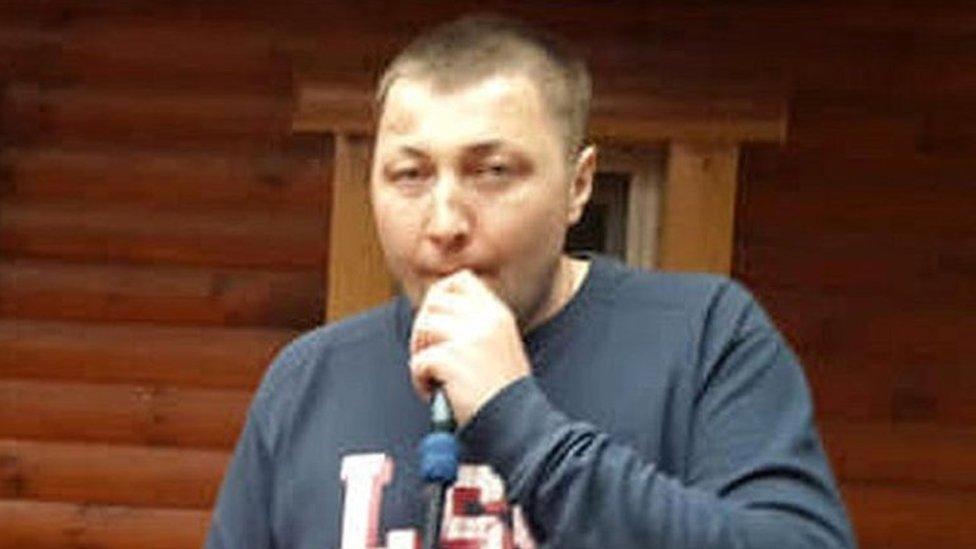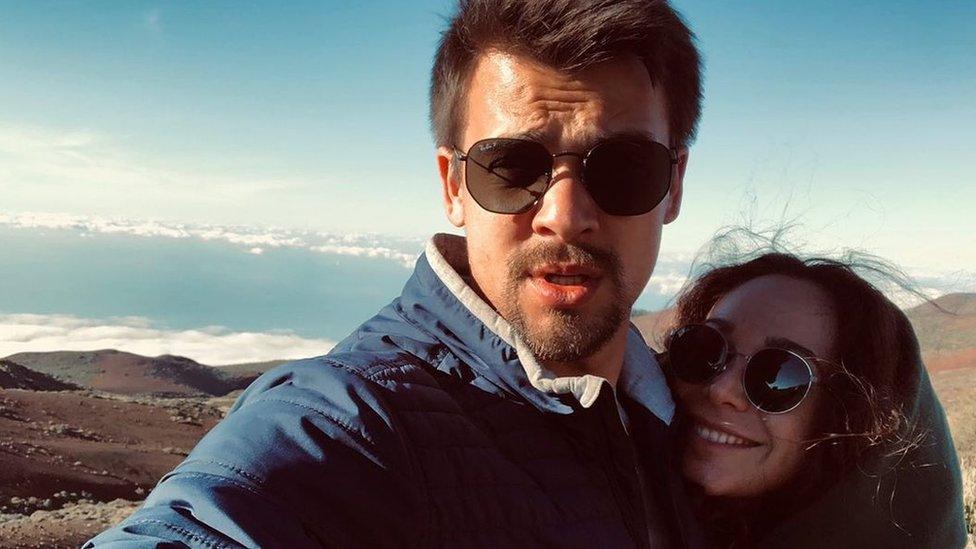Former Belarus 'hit squad member' found not guilty
- Published

Yury Garavsky, a former Belarusian soldier, fled to Switzerland in 2018
A court in Switzerland has acquitted a Belarusian man who had been charged with the forced disappearance of three prominent opposition figures in 1999.
Yury Garavsky said he had been part of a hit squad involved in the men's abductions but denied direct involvement in their deaths.
But the judge said it was not clear if his testimony was true after he got entangled in contradictions.
Victims' families had hoped for an end to 24 years of agonising uncertainty.
The legal case began after the former soldier of the Belarusian interior ministry troops contacted journalists in 2019, claiming that he had been involved in the disappearances.
He gave a detailed account of how a secret hit squad snatched the three opponents of the country's authoritarian leader Alexander Lukashenko from the streets of Minsk, drove them out of town and then shot them twice in the back.
During two days of testimony last week, Mr Garavsky contradicted his previous statements multiple times, blaming a "bad translation".
The judge appeared sceptical and has now found him not guilty of the forced disappearance of former interior minister Yury Zakharenko, opposition politician Viktor Gonchar and his friend Anatoly Krasovsky, a prominent businessman.

Yury Zakharenko (centre, with a moustache) vanished from the Belarusian capital, Minsk, in May 1999
The judge said Mr Garavsky may have been a member of the SOBR special forces unit in Belarus, but his role in the abductions remained unclear.
He added that he believed the Belarusian had invented parts of his testimony.
Valeria Krasovskaya, the daughter of one of the disappeared - businessman Anatoly Krasovsky - said she found the ruling "very absurd, very strange".
"Perhaps the judge has his own logic, different to common sense," she told the BBC.
Neither the families nor their lawyers have yet seen the judge's full reasoning, which will only be available once a formal appeal has been lodged.
In his previous comments about the disappearances, Mr Garavsky accused Dmitry Pavlichenko, the head of the notorious special forces unit, of carrying out the actual killings.
In 2003, a Council of Europe investigation also linked Col Pavlichenko to the forced disappearances and concluded that the crime had been covered-up "at the highest level of state".
Dmitry Pavlichenko described the allegations as "nonsense". He later claimed not to know Mr Garavsky, although a photograph shows the two men together at an official event.
The Belarusian authorities have yet to reply to a BBC request for comment.
Mr Garavsky arrived in Switzerland in 2018 to seek political asylum after a car accident that he claims was an attempt on his life.
He was tried in a Swiss court because the country is party to a United Nations convention against forced disappearance.
The case had raised hopes that a successful prosecution would set a legal precedent.
Related topics
- Published19 September 2023

- Published11 May 2023
